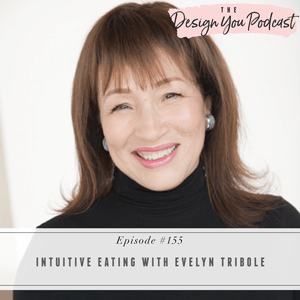
Most of us have tried dieting at some point in our lives, with many of us persistently going on and off of them and struggling to maintain our desired weight. But diet culture undermines self-trust and creates the drive to fixate on food. There is a more effective way to live a healthy lifestyle: intuitive eating. Today’s guest is here to share what intuitive eating is and how it can change your life, and it is a personal privilege to welcome her to the show.
Evelyn Tribole is an award-winning Registered Dietitian and Co-Founder of the Intuitive Eating movement – a revolutionary anti-diet approach to life. She is passionate about dismantling diet culture and has written ten books on the topic, including her upcoming book, Intuitive Eating for Every Day: 365 Daily Practices & Inspirations to Rediscover the Pleasures of Eating. She joins me this week to discuss intuitive eating and the benefits of incorporating it into your life.
Join us this week to learn why diet culture is rooted in systems of oppression such as racism and patriarchy, and why all bodies, regardless of size, race, and gender, are worthy of dignity and respect. We discuss why body image is in the mind, not the mirror, and how you can dismantle diet culture in your life. If you want to give up dieting forever, make peace with your food and respect your body, regardless of your size or shape, this is your episode.
If you want help creating a business with thriving revenue streams so that you can design the life you really want this year, now is your chance! We’re going to be opening the doors to the Design You Coaching Program really soon, get on our waitlist now!





